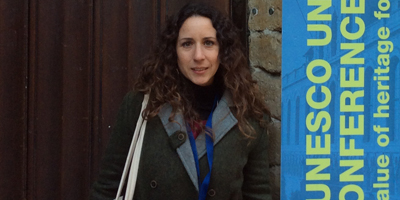EUL has been represented in Belgium

Academician of European University of Lefke (EUL) Faculty of Architecture Assist. Prof. Dr. Aliye Menteş attended the 6th United Nations Educational, Scientific and Cultural Organization University Twinning and Networking Programme organized at KU Leuven University with the corporation of KU Leuven University and Sorbenne University in Leuven, Belgium and represented EUL. In the conference, Menteş presented her study titled “Sustainable Tourism Development Process and Limitations: The Case of Ivriz Village, Turkey”.
Giving information about her presentation titled “Sustainable Tourism Development Process and Limitations: The Case of Ivriz Village, Turkey”, Menteş said that “The traditional village of Ivriz, 170 km southeast of Konya, faces typical rural decline problems with an elderly population of about 200 people”. Menteş also said that Ivriz offers a rich and unique material and intangible cultural heritage with strong potential for sustainable tourism development and added that In the center of the village of Ivriz, there is a Neo-Hittite rock relief from the 8th century BC and in April 2017 the Ivriz Cultural Landscape was included in the UNESCO World Heritage temporary list. She also said that “The archaeological heritage site (Hittite Monument), traditional civil architecture of mudbrick buildings, industrial heritage, natural landscape heritage and socio-cultural values constitute important potentials for the development of sustainable tourism”.
Menteş said that the aim of her study is to examine the sustainable tourism development process of the village of Ivriz through a series of formal and informal initiatives as well as the experience of the ongoing rural development project and added that Ivriz sustainable tourism project has started in 2016. She further stated that as a part of the project on November 2017 “İvriz Cultural Heritage Protection and Promotion Association” was established and added that women in particular carry out capacity building activities to strengthen their economic freedom. She also added that difficulties arising from the different expectations of different stakeholders lead to complications in the development process and create discouraging results among society. Menteş stated that “Since the active participation of the local community is a key factor for sustainable development, this study looks at the challenges and achievements of the association from local community perspectives”.
Menteş finally stated that the Sustainable Rural Development process of the study examines the monthly reports of the association through qualitative research methodology and long-term observation studies and added that “Research is supported through formal meetings with stakeholders and observations and interviews with local participants”.
